
Giovanni Battista Draghi, often referred to as Giovanni Battista Pergolesi, was an Italian Baroque composer, violinist, and organist. His best-known works include his Stabat Mater and the opera La serva padrona. His compositions include operas and sacred music. He died of tuberculosis at the age of 26.
Opera buffa is a genre of opera. It was first used as an informal description of Italian comic operas variously classified by their authors as commedia in musica, commedia per musica, dramma bernesco, dramma comico, divertimento giocoso.
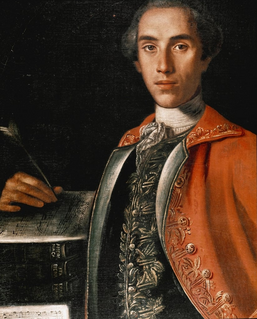
Leonardo Leo, more correctly Lionardo Oronzo Salvatore de Leo, was a Baroque composer.
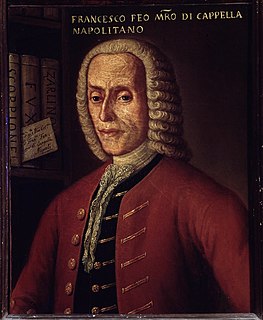
Francesco Feo was an Italian composer, known chiefly for his operas. He was born and died in Naples, where most of his operas were premièred.

Riccardo Broschi was a composer of baroque music and the brother of the opera singer Carlo Broschi, known as Farinelli.
Bernadette Manca di Nissa is an Italian operatic contralto who has sung leading roles in the principal opera houses of Italy as well as internationally. She has appeared at La Scala in Milan, La Fenice in Venice, Teatro San Carlo in Naples, and the Maggio Musicale Fiorentino in Florence as well as at the Royal Opera House, Covent Garden, Gran Teatre del Liceu in Barcelona, Lyric Opera of Chicago, Festival of Salzburg, Matsumoto Festival, NHK in Tokyo, Sao Carlos Theater in Lisboa etc.
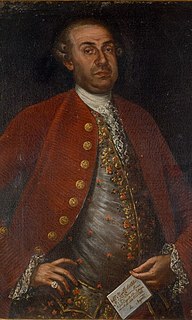
Gennaro Manna was an Italian composer based in Naples. He was a member of the Neapolitan School. His compositional output includes 13 operas and more than 150 sacred works, including several oratorios.

Il prigionier superbo is an opera seria in three acts, composed by Giovanni Battista Pergolesi to a libretto attributed to Gennaro Antonio Federico, and based on an earlier libretto by Francesco Silvani for Gasparini's opera, La fede tradita e vendicata. It was premiered at the Teatro San Bartolomeo in Naples on 5 September 1733 and received further performances in October. The opera, with its labyrinthine plot involving the rivalry of Metalce and Viridate for the hand of Rosmene, soon sank into oblivion, but its comic intermezzo, La serva padrona was to achieve considerable success when performed on its own.

Carlo Scalzi was an Italian castrato who had an active performance career in major opera houses in Italy from 1718-1738. He was also heard in London in 1733–1734 where he notably created the role of Alceste in the world premiere of George Frideric Handel's Arianna in Creta. The librettist Pietro Metastasio described Scalzi as a "very unique (sic) singer" and likened his voice to that of the famous castrato Farinelli.
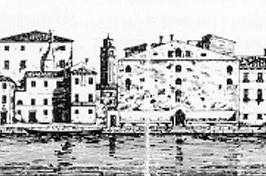
The Teatro San Angelo or Teatro Sant' Angelo was once a theatre in Venice which ran from 1677 until 1803.
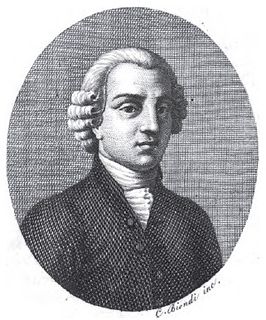
Sebastiano Biancardi, known by the pseudonym Domenico Lalli, was an Italian poet and librettist. Amongst the many libretti he produced, largely for the opera houses of Venice, were those for Vivaldi's Ottone in villa and Alessandro Scarlatti's Tigrane. A member of the Accademia degli Arcadi, he also wrote under his arcadian name "Ortanio". Lalli was born and raised in Naples as the adopted son of Fulvio Caracciolo but fled the city after being implicated in a bank fraud. After two years wandering about Italy in the company of Emanuele d'Astorga, he settled in Venice in 1710 and worked as the "house poet" of the Grimani family's theatres for the rest of his career. In addition to his stage works, Lalli published several volumes of poetry and a collection of biographies of the kings of Naples. He died in Venice at the age of 62.

Maria Caterina Negri was an Italian contralto who created numerous roles in 18th-century operas, including many by George Frideric Handel. She primarily portrayed male characters en travesti or female warriors such as Bradamante. Negri was born in Bologna and made her debut there at the age of 15. Her last known performance was in 1744. The date and place of her death are unknown. In its prime, her voice was known for its agility and wide vocal range.

L'Olimpiade is an opera in the form of a dramma per musica in three acts by the Italian composer Giovanni Battista Pergolesi. Pergolesi took the text, with a few modifications, from the libretto of the same name by Pietro Metastasio. The opera first appeared during the Carnival season of 1735 at the Teatro Tordinona in Rome and "came to be probably the most admired" of the more than 50 musical settings of Metastasio’s drama.
Gennaro Antonio Federico was a Neapolitan poet and opera librettist. He is best remembered for his collaborations with G. B. Pergolesi including La serva padrona.

Antonio Orefice was an Italian opera composer active in Naples. His Patrò Calienno de la Costa was the first opera buffa in Neapolitan dialect to be performed on a public stage.

Nicola De Giosa was an Italian composer and conductor active in Naples. He composed numerous operas, the most successful of which, Don Checco and Napoli di carnevale, were in the Neapolitan opera buffa genre. His other works included sacred music and art songs. His songs were particularly popular, bringing him fame as a salon composer both in Italy and abroad. De Giosa died in Bari, the city of his birth, at the age of 66.

Don Checco is an opera in two acts composed by Nicola De Giosa to a libretto by Almerindo Spadetta. It premiered on 11 July 1850 at the Teatro Nuovo in Naples. Don Checco was De Giosa's masterpiece and one of the last great successes in the history of Neapolitan opera buffa.
Giuseppe Puzone was an Italian opera composer and conductor active in Naples, the city of his birth. He was for many years the principal conductor of the Teatro San Carlo where his opera Elfrida di Salerno had premiered in 1849. He composed three other operas, all of which premiered in Naples, as well as sacred and symphonic music.
Celeste Gismondi, originally known as Celeste Resse and nicknamed La Celestina, was an Italian soprano opera singer, who performed a major role in the première of some works by George Frideric Handel, including Orlando.

Eliodoro Bianchi was an Italian operatic tenor and later a prominent singing teacher. Born in Cividate al Piano and trained in Naples under Giacomo Tritto, he made his stage debut in 1793. Amongst the many roles he created during the course of his 40-year career were Baldassare in Ciro in Babilonia and the King of Sweden in Eduardo e Cristina, both of which were composed by Rossini expressly for Bianchi's voice. He retired from the stage in 1835 and spent his later years in Palazzolo sull'Oglio, where he died at the age of 75.















